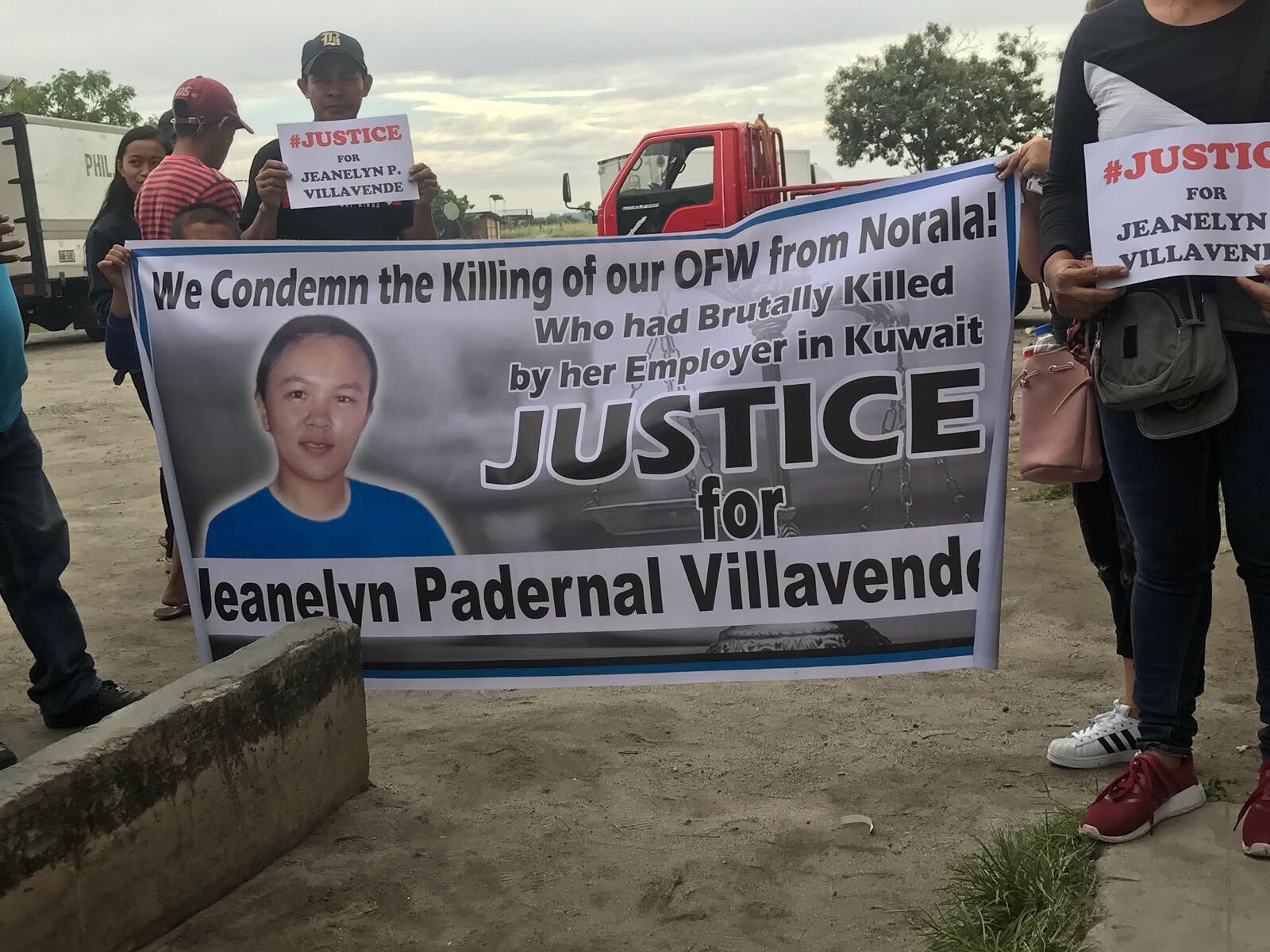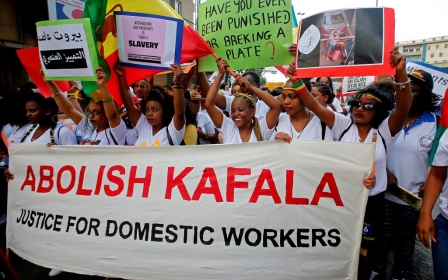Philippines issues full ban on workers going to Kuwait after violent death of maid

The government of the Philippines has issued a total ban on the deployment of workers to Kuwait following the death last month of Filipino household worker Jeanelyn Villavende, who was allegedly physically and sexually abused by her Kuwaiti employers.
An embalming certificate released by Kuwait's Ministry of Health said that Villavende died of "acute failure of heart and respiration" as a result of shock and multiple injuries in the vascular nervous system.
However, a separate autopsy by the Philippines National Bureau of Investigation (NBI) on 10 January showed the 26-year-old had healed wounds - suggesting that she was beaten weeks before her death - and “clear indications of sexual abuse”.
The NBI's autopsy found that Villavende, who was reportedly beaten “black and blue”, died from "multiple, severe, traumatic injuries", including near her genitalia, suggesting she was raped before her death.
“The autopsy results from Kuwait and the NBI are essentially the same. They have the same cause of death, Villavende was mauled to death," said the Philippines Justice Secretary Menardo Guevarra during a news conference in Manila.
"It is just that the NBI came out with other findings that were not seen in the Kuwaiti report. But the cause of death was the same due to trauma, injury due to infliction of injuries to the body.”
Other findings from the NBI autopsy, which took place after Villavende's body was repatriated, showed that her brain and heart were missing as a result of the previous autopsy on her body in Kuwait.
The Kuwait Times said Villavende's body was brought to a hospital in Kuwait on 28 December and that her family was informed of her death on 30 December.
Concerns over previous agreement
More than 200,000 Filipinos work in Kuwait, with the Gulf country being the tenth biggest source of remittances for the Philippines.
Before Wednesday's announcement, the Philippine Overseas Employment Administration had earlier this month only imposed a partial deployment ban, which covered newly-hired household service workers.
In February 2018, Manila issued a previous ban on workers going to Kuwait after the body of Joanna Demafelis, 29, was found in a freezer.
The ban was lifted in May 2018 after the two countries signed an agreement for the protection of Filipino workers.
However, the Philippines Labour Secretary Silvestre Bello III complained that the agreement was not being adhered to by Kuwait.
Bello's chief concerns included Kuwait's failure to draft contracts that would allow Filipinos to keep their passports and mobile phones, or specify the sleeping and working hours of workers.
Middle East Eye propose une couverture et une analyse indépendantes et incomparables du Moyen-Orient, de l’Afrique du Nord et d’autres régions du monde. Pour en savoir plus sur la reprise de ce contenu et les frais qui s’appliquent, veuillez remplir ce formulaire [en anglais]. Pour en savoir plus sur MEE, cliquez ici [en anglais].




